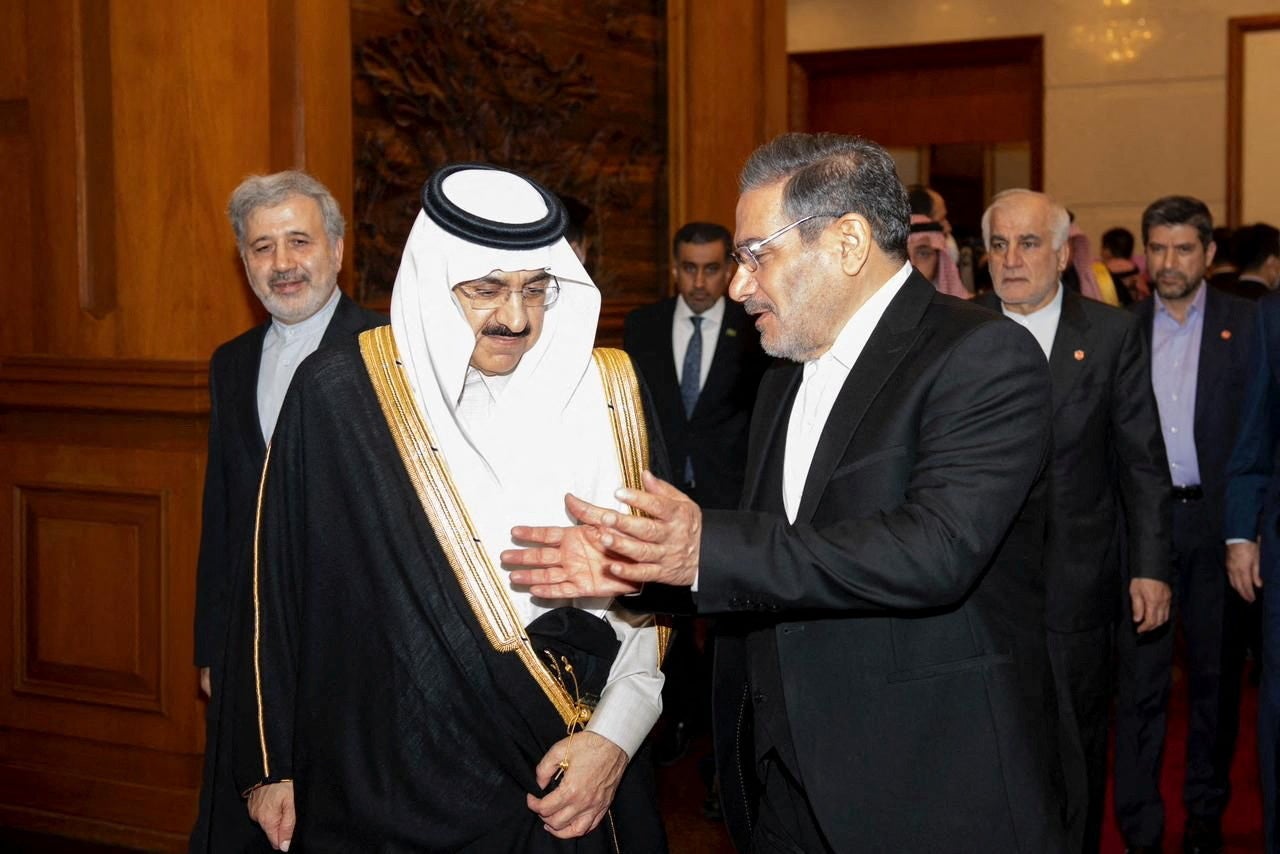Saudi Arabia and Iran agreed to restore trade and diplomatic ties in a deal brokered by China
Beijing's top diplomat called the agreement a victory for dialogue as China exerts its influence in the region

Iran and Saudi Arabia agreed to normalize diplomatic and trade relations on Friday (March 10) after years of tension that threatened to destabilize the Gulf region. The deal was facilitated by China, which has forged close political ties with both countries.
Suggested Reading
The agreement came after four days of covert meetings in Beijing by senior security officials from the two countries, culminating in a joint statement affirming “respect for the sovereignty of states and the non-interference in internal affairs.”
Related Content
The statement confirmed that Tehran and Riyadh would re-establish a full diplomatic relationship, including opening new embassies within the next two months, as well as the re-activation of a lapsed security cooperation pact.
Saudi Arabia officially cut ties with Iran in 2016, after protestors attacked Saudi diplomatic missions in the Iranian cities of Tehran and Mashhad with Molotov cocktails and petrol bombs. The demonstrators were protesting Saudi Arabia’s decision to execute Nmir Baqir al-Nimr, a Shia cleric and critic of the Saudi government.
In the years since, the two countries have been involved in a complex web of geopolitical tensions and proxy conflicts across the region. Notably, Saudi Arabia accused Iran of attacking key oil installations within Saudi borders in 2019.
The two countries have also been heavily involved on opposite sides of the Yemeni civil war, with the Iran-supported Houthi rebel movement firing missiles across the border into Saudi Arabia. Saudi Arabia, along with the United Arab Emirates (UAE) and the Yemeni government, have retaliated with airstrikes and drone attacks, adding to a war that has caused the deaths of approximately 250,000 people.
The agreement is the latest diplomatic move Iran has made to disrupt US efforts to isolate it from the global community. Iran’s foreign minister, Hossein Amir-Aabdollahian, suggested there is more to come.
“The neighborhood policy, as the key axis of the Iranian government’s foreign policy, is strongly moving in the right direction and the diplomatic apparatus is actively behind the preparation of more regional steps,” Amir-Abdollahian said in a tweet.
China is growing its influence in the Middle East
Wang Yi, Beijing’s senior diplomat, characterized the deal as evidence that China is a stabilizing geopolitical force in the world.
“This is a victory for the dialogue, a victory for peace, and is major positive news for the world which is currently so turbulent and restive, and it sends a clear signal,” he said after announcing the agreement.
Yi also said that China plans to play a role in handling hotspot issues in the world going forward and criticized the West for a myopic view of foreign policy, saying “the world is not just limited to the Ukraine issue.”
China in recent years has attempted to increase its influence in the Middle East, a region where the US has typically been an influential player. Specifically, the country has developed a closer relationship with Iran, the UAE, Qatar, Iraq, and Saudi Arabia, all of which have received funds from China’s Belt and Road development initiative.
Chinese leader Xi Jinping visited Riyadh in December of last year, meeting with the Saudi royal family to promote closer economic ties, particularly in the energy sector. China supplanted the European Union as Saudi Arabia’s top trading partner in 2020. Saudi exports to China exceeded $50 billion last year.
China has seen investments in the region pay off politically, not just economically. Last fall, when the UN published a report condemning the Chinese government’s possible crimes against humanity against Muslim minorities in the Uighur region, China was able to secure Arab opposition to the findings.
The UAE, Qatar, and Sudan—the three Muslim nations that are part of the UN Human Rights Council—voted to prevent the report’s consideration, while the Saudi government praised the Chinese government for taking “de-extremism” measures seriously.
Related stories:
🇸🇦 Xi Jinping’s visit to Saudi Arabia is bad news for the Kremlin